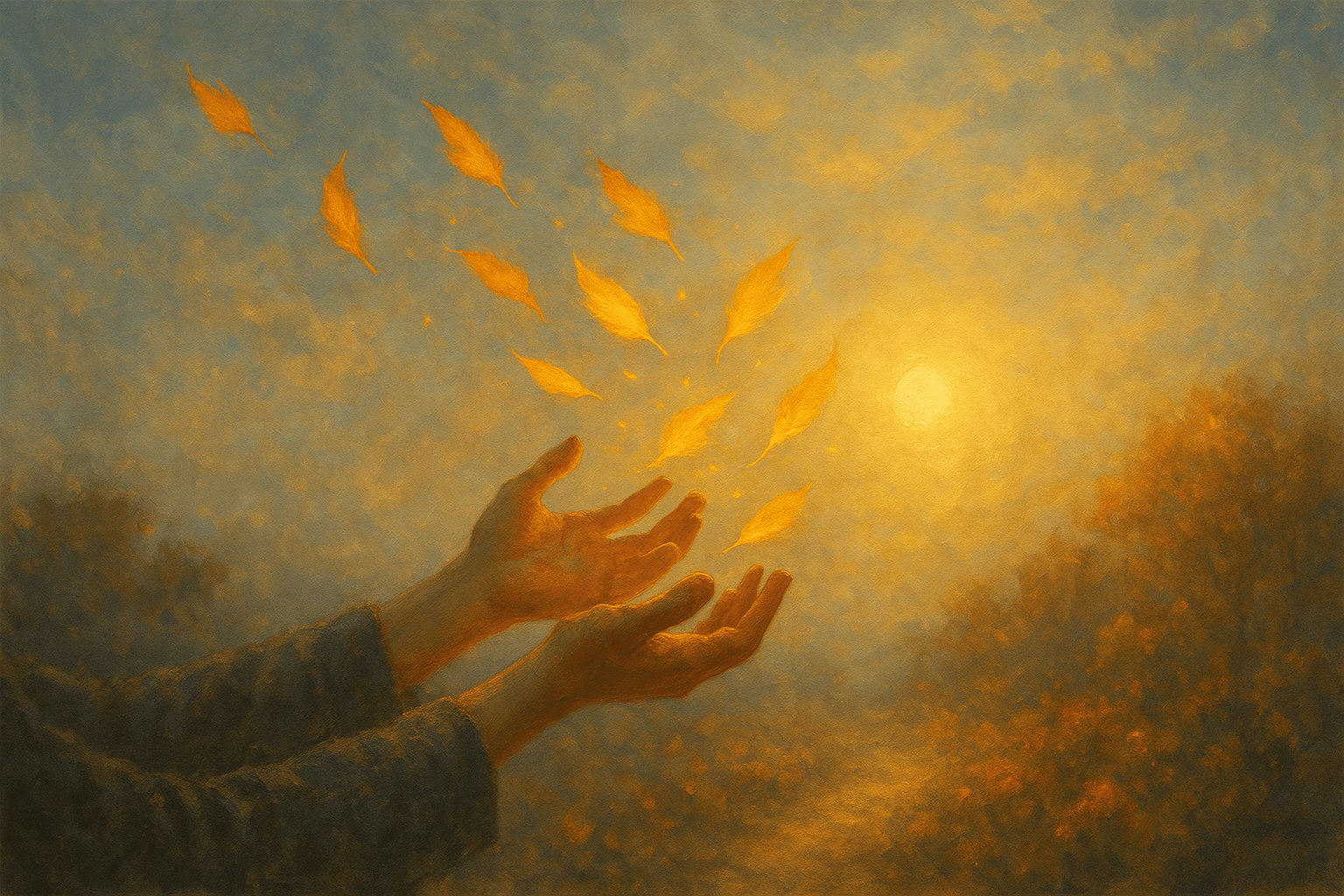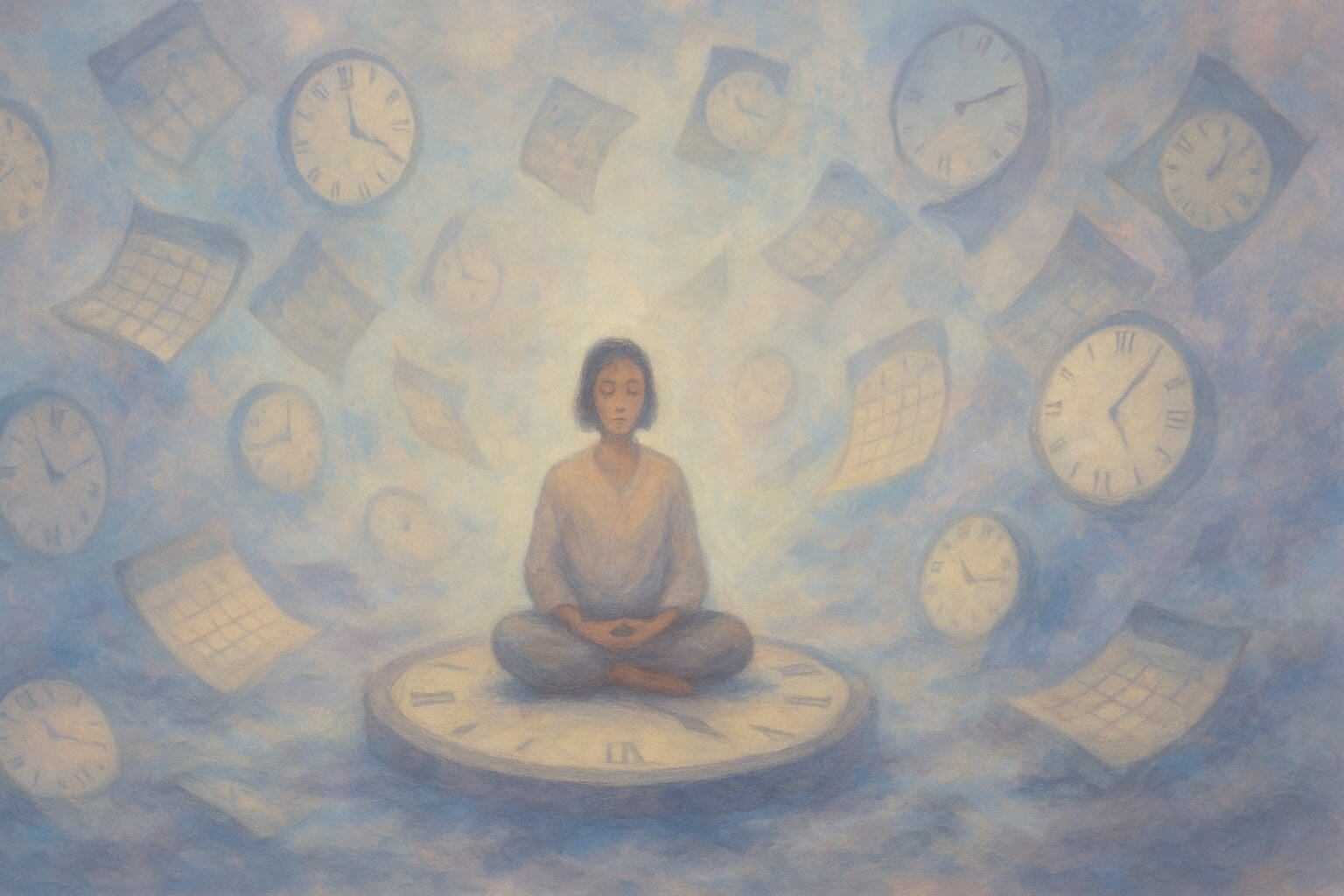Embracing the Beauty of Life’s Non-Linear Moments
In a world constantly driven by productivity, achievement, and purpose, the idea of “pointlessness” can seem uncomfortable – almost like a taboo. We’re taught that everything must have a clear reason or end goal, that time is precious and should be spent efficiently. But what if, instead of rejecting moments that seem pointless, we could embrace them as essential parts of our human experience?
The concept of “precious pointlessness” might sound paradoxical, but it offers a refreshing perspective on the value of non-productive time and the beauty found in seemingly aimless moments. When we stop measuring every second by its utility, we begin to see the profound value in simply being.
Redefining Pointlessness
The first step in understanding “precious pointlessness” is to redefine what we mean by “pointless.” In our productivity-driven culture, pointlessness is often equated with waste. However, in a broader, more spiritual context, pointlessness can be seen as an invitation to be present without expectation or external judgment.
This redefinition allows us to shift our perspective and see these moments not as voids but as spaces for exploration, relaxation, creativity, or even deep reflection. When we let go of the need for everything to have a clear purpose, we open ourselves up to a more expansive, fluid experience of life.
The Value of Unstructured Time
Consider the times when you’ve been fully immersed in an activity with no goal in mind – perhaps it’s sitting by a window, staring out at the world, or wandering aimlessly in nature. These experiences, although they may seem trivial or “pointless,” often leave us feeling restored, inspired, or even transformed in subtle ways. Unstructured time can allow us to reconnect with our true selves, cultivate creativity, and process emotions that might otherwise go unacknowledged in the busy rush of daily life.
In fact, there is scientific evidence supporting the importance of unstructured time for mental health and creativity. Studies have shown that allowing the mind to wander or rest can lead to breakthroughs in problem-solving, improved mood, and even greater life satisfaction.
The Art of Doing Nothing
Doing nothing, at least in the traditional sense, might be one of the most important acts of self-care we can practice. In a society that glorifies constant motion and activity, allowing ourselves to simply “be” can feel counterintuitive. But this “doing nothing” is not a failure or wasted time – it is an essential practice for recharging and restoring balance.
Think about the act of taking a nap without any agenda, going for a walk with no destination, or engaging in a hobby without concern for how much you achieve. These moments of “pointlessness” provide the space we need to rejuvenate, to reflect, and to simply exist without the pressure to accomplish something.
Life’s True Meaning is Found in the In-Between
Much of life’s deepest meaning is not found in grand accomplishments or milestones, but in the small, seemingly insignificant moments. Life is made up of the in-between – those times of waiting, the pauses between conversations, the quiet moments between action. These are the moments where we connect with the present and allow ourselves to simply experience life as it is.
When we embrace “precious pointlessness,” we can find joy in the mundane and beauty in the unnoticed. We can pause and listen to the rhythm of our own thoughts, breathe deeply, and reconnect with the simplicity of the world around us. We begin to realize that these small moments are the threads that weave our experience of life together.
A Call to Slow Down
In a world that constantly urges us to speed up, embracing precious pointlessness is a radical act of rebellion. It’s a rejection of the idea that we must always be moving forward, achieving, or accumulating more. Instead, it’s an invitation to slow down, to savor life’s quieter moments, and to honor the spaces between the big events.
To live fully, we must allow ourselves to do “nothing” from time to time. These pauses – often seen as points of waste or inaction – are where we find our most profound connection to ourselves and the world around us.
Embracing Life’s Quiet Wisdom
Precious pointlessness is a reminder that not every moment needs to be productive, and not every experience needs to have a measurable outcome. By embracing these moments, we make room for life’s quiet wisdom to emerge. It is in the pauses, the unstructured time, and the so-called “wasted” moments that we often find the deepest meaning, creativity, and inner peace.
So next time you find yourself with a “pointless” moment, remember that it is precious. It’s an opportunity to reconnect with the present, to breathe deeply, and to simply be. In those moments, life is happening – not because of what we’re doing, but because of who we are in that space.
The art of embracing pointlessness could be the key to unlocking a richer, more meaningful experience of life.







0 Comments
Get involved!
Comments